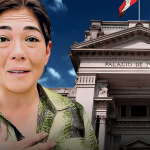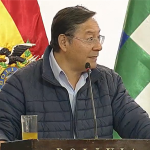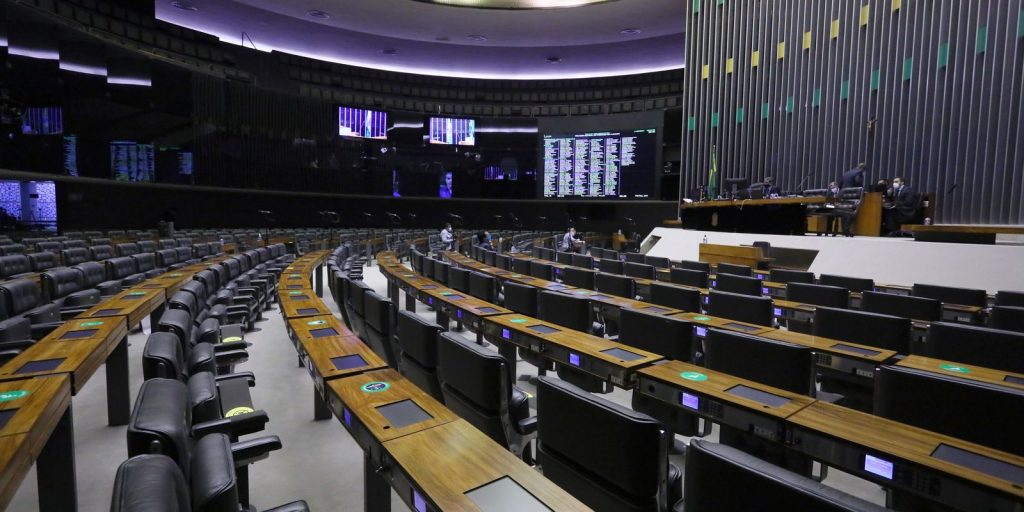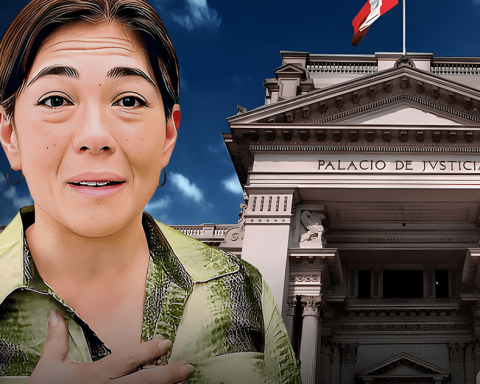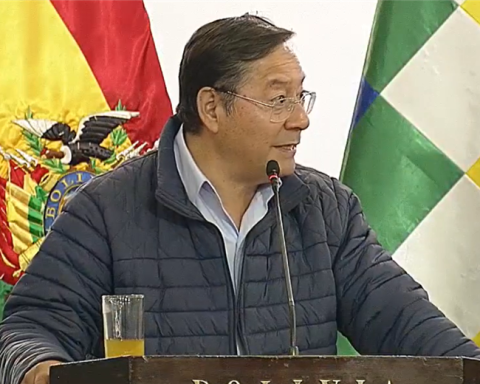
It is one of the most anticipated reports, the longest and where there are several sources of tension. The proposal for constitutional norms of the Political System Commission of the Constitutional Convention (CC) would follow the same fate as that of the last commissions: that the vast majority of its articles be rejected in plenary, for not reaching 2/3, thus returning to the commission and allowing it to work quickly on consensus that makes proposals viable, such as the formula of Congress.
The clear evidence of the lack of agreements is that the commission was unable to unblock the discussion between a Territorial Council and a Territorial Chamber –the second with more powers–, leaving the decision to the Plenary. In addition, there is a transversal view that the report has systemic problems, in some cases of contradictions between one article and another (as occurs with the Territorial Council and Chamber), and that there is no alignment between the powers of the Executive and Legislative powers. . Another article that they predict will be rejected is the one that recognizes the existence of social movements as political entities (political-social movements), in addition to the triumvirate, made up of the model of President, Vice President and Minister of Government.
In the last hours, sectors of the Convention have made explicit the need to make a new agreement, aimed at rejecting the articles in question, despite the fact that without said agreement the two proposals would fall the same. On the way of rejecting the agreement is the Colectivo del Approvebo, the right, and some also say that the Non-Neutral Independents and the Socialist Collective are, which generated noise among the representatives of the left and independents, who based on a information published by ThirdRegarding this incipient agreement to reject, they asked for explanations. From INN, in fact, they say they are unaware of these conversations, as are some in the Socialist Collective.
“I consulted the representatives of the PS and they categorically deny it. I have no choice but to trust their statements,” he told The counter the constituent Mark Barraza (PC), who added that it would be serious if the pre-agreement of the commission was ignored, to advance in an asymmetrical bicameralism (signed by Chile Digno, FA, PS, Social Movements, the Plurinational and Popular Coordinator, independents and other groups), which includes the figure of the Territorial Council.
Barraza pointed out that “communists are going to honor the agreement signed between the forces of the transforming left and the forces of the center-left, in the sense of propitiating and consolidating, via constitutional norms, an asymmetric bicameralism that is expressed in a Plurinational Congress and a Territorial Council , which would only address matters at the regional level, and we are obviously going to reject those regulations that seek to reissue or revive a Senate in terms of a reviewing Chamber as it exists today”, closing the door to exploring a new agreement that goes another way.
In the opinion of the also former minister, this would also be the position that the Broad Front has transmitted to him, despite the internal nuances that exist in said group, especially after the point made by President Gabriel Boric, who said that it seems “reasonable “provide real powers, and not merely symbolic, to the Territorial instance that is settled. According to Barraza, these statements did not put pressure on Approve Dignidad within the CC, because “the President has an opinion on the subject, but it seems to us that this is not contradictory with an asymmetrical bicameralism.” This, despite the fact that after those words some within the FA opened up to exploring the formula.
However, from other sectors of the Convention they have put pressure on the Frente Amplio members and the PC with these declarations, which they assure are more along the lines of a Territorial Chamber, with strong powers and not focused only on the regional. It is along these lines that they have summoned the government parties to open up to exploring an agreement aimed at a stronger bicameralism, also –point out– to really counteract the powers of the Executive Power.
The constituent of the Approval Collective, Fuad Chahinsaid he hoped “that once and for all the political forces that are part of the government coalition and that are represented in the Convention listen, heed it, follow their President. The President said ‘I don’t want a partisan Constitution, I want a that represents us all’, and I see that sometimes they do the opposite (…). Come to an agreement and, please, follow the President, do not leave him without a floor”.
“An attempt was made to move towards a model of asymmetric bicameralism, but when it is done on a chassis that does not correspond, things do not look good and there are problems of different types, of nomenclature, of coherence, coexistence, institutional design, and therefore there are to withdraw everything in a second report,” added the former deputy.
In the case of Non-Neutral Independents, the constituent William Namore clarified the position of his group. “We believe that the best way is an asymmetric bicameralism, typical of countries with a Regional State, such as Spain, Italy, and others such as Germany or France. We have a difference that we must discuss, and we hope to move from a corrected unicameralism to an asymmetric bicameralism, with a Territorial Chamber that allows the greatest democratic deliberation, but that, unlike what is happening today, does not have a mirror veto power with respect to the Political Chamber, in such a way that it allows the transformations that Chile expects, without ignoring the concern by institutional balances in the face of political and social crises or by the rise of authoritarianism”.
The agreement signed in pursuit of asymmetric bicameralism will also be respected by the Constituent Social Movements and the Plurinational and Popular Coordinator. From this last space, the constituent Tania Madriaga stressed that “we are analyzing the document in detail and are inclined to vote in favor of all the articles that are part of the transformative thrust, plurinationality and self-determination of peoples, substantive parity, the Plurinational Congress, the Territorial Council, the movements political-social, a parity Executive with fewer powers than the current one”.
In addition, “the right to vote from the age of 16, the institutional participation of indigenous people through reserved seats, and we will replace indications on the participation of independents, the recognition of communities as actors of democracy, the recognition of the genocide of indigenous peoples, the vice president or vice president as coordinator of political relations with the bodies of the territorial autonomies”.
The conversations continued yesterday, and today will also be a day in which all sectors will seek rapprochements, possible agreements or strengthen what has already been settled. Those leading the negotiations and various conversations on the subject are Marcos Barraza (PC), Jaime Bassa (FA), Guillermo Namor (INN), Alondra Carrillo (MSC), Tania Madriaga (Plurinational and Popular Coordinator), Ricardo Montero and Pedro Muñoz ( C. Socialista), Fuad Chahin (C. del Approval), while from the right, although they do not have such active conversations with the rest, there is Cristián Monckeberg.
For some in the CC this will be a first test in the political regime to measure how much influence the new government could have in the definitions of its constituents, whether independence is maintained or not, and also how much the socialist alliance with the forces of left on this pass.






